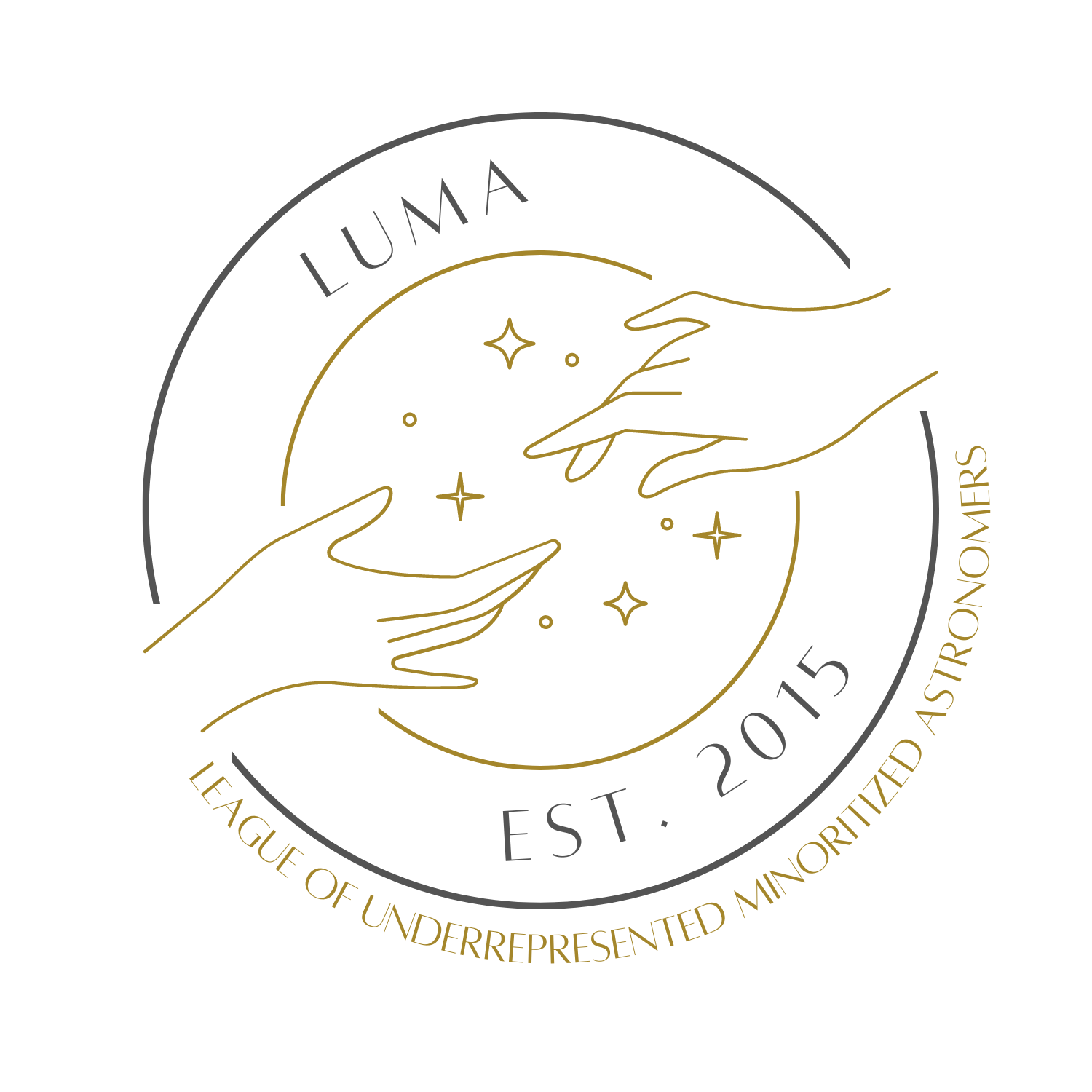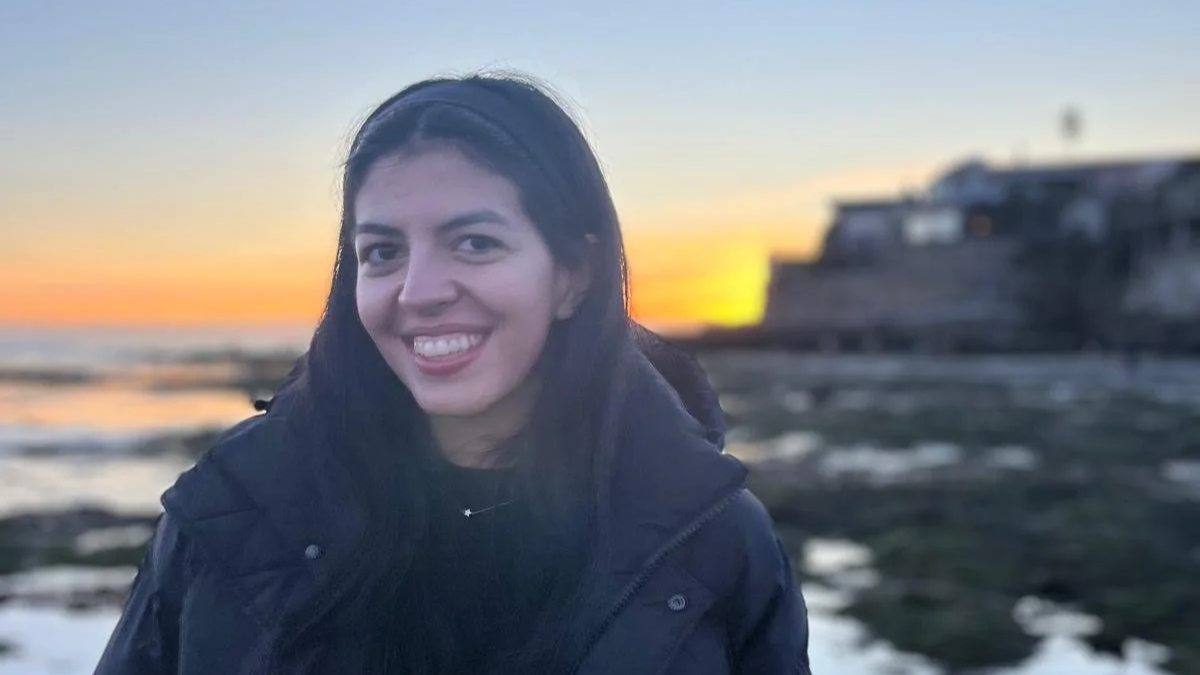Member Spotlight: Alejandra Rosselli-Calderon
Meet the the first guest in our new Member Spotlight Series: Alejandra Rosselli-Calderon. Alejandra Rosselli-Calderon is an astrophysics PhD student at the University of California, Santa Cruz. Her research focuses on computationally simulating the interactions between stars and their companions, such as more massive stars, neutron stars and black holes. Aside from research, Alejandra actively participates in outreach and diversity efforts, where she focused on creating welcoming and equitable environments for students in physics and astronomy. As an educator and a mentor, Alejandra has had the opportunity to work hand in hand with students, encouraging their passion for scientific pursuit. Outside of science, Alejandra enjoys crocheting, being outdoors and watching sunsets.
Q: How would you describe your research to an undergrad?
A: My research focuses on multiple-star systems, like binaries and triple systems. I'm interested in seeing how these systems interact with one another as they evolve. I look at how each of the components (and their background) affect each other in the hopes of finding clues that we can observe today that can give us insights about the past lives of the stars we see in the sky. I use supercomputers in order to run simulations of the evolution of these systems, since it takes millions of years for such systems to evolve and I don't want to wait all that time to know the answers.
Q: What do you enjoy most about your research?
A: What I enjoy the most is plotting the results of my simulations. It is very satisfying to see that they actually work after I spent hours fixing and debugging code. It makes me feel a sense of accomplishment, but it also challenges me to portray the information as clearly as possible to people who have not seen the data before.
Q: What do you enjoy doing outside of research?
A: I try my best to keep a balance between research and my life outside of the PhD. I find that the best way for me to find a balance is to keep my mind and body occupied. I love to find new ways to exercise and challenge my body, and that's currently aerial dance and hiking. I also spend a lot of time reading, working on puzzles, cooking, crocheting or knitting.
Q: What is something you've accomplished that you're proud of and willing to share?
A: I recently passed my qualifying exam! In general this is a big milestone for any PhD student so I was very happy to get it done. I think what I was most proud of was the introspection I did while preparing for it. Laying out a timeline of my projects for the next couple of years helped me connect the dots and see the big picture. I tend to focus on the small stuff so having to step back and reflect gave me the opportunity to look back at how far I've come and get excited about the future.
Q: Tell us about one short-term goal you're aspiring towards.
A: One of my short-term goals is to finish my most recent crochet project. I have a vision for it and I am not entirely following a pattern so I am really excited to see it come to life. Not having a pattern means I am changing things as I go, seeing if they work and having to unravel my work when it doesn't look like what I had in mind. It is something I don't often do but it is a fun challenge and so far it has been working out.
Q: Tell us about one long-term goal you're aspiring towards.
A: Right now, my main long-term goal is probably to finish my PhD. I'm about halfway there but I still have so many plans for the projects I want to achieve. The current climate for the sciences is kinda murky so I prefer not to think that far ahead. I don't know how things will pan out in the coming years. I hope that whatever comes after my PhD is exciting and fulfilling but right now I am focusing on working on my projects and enjoying living in Santa Cruz. I am thankful to have the opportunity to be funded to do research in a beautiful corner of the world so I try to remind myself to be present. I'm following my compass and keeping it aligned with my overall goals, but I'm not trying to look too far beyond. I trust the decisions I am making right now and I can only hope that in a few years they work in my favor.
Q: Can you tell us about a setback you have, or currently are, facing in your career?
A: Three year ago I actually transferred PhD programs. I was in a physics program with an "old-school" approach that did not really align with my beliefs on learning and research. Overall, it was not a place where I could see myself growing as a scientist. Leaving the program was a hard decision to make. I felt like "mastering out" would give the impression that I was not good enough when applying to other schools, and starting from scratch made me feel like I had wasted my time. At the end, it was the right decision to make and I am really glad I ended up at UCSC. Here I have a much more supportive environment and I have access to many more opportunities. I am doing research that I find exciting while working with people who inspire me, so I have absolutely no regrets about my decision.
Q: If you could pass along one bit of advice to your colleagues in LUMA, what would it be?
A: Practice saying no and setting boundaries. This is still really hard for me but I am trying to work on it. Academia often asks for unpaid labor and it often falls on the same group of people again and again. It is important to prioritize yourself and your goals. Setting boundaries can help avoid burnout and protects your time, so it is definitely something worth working on.
Congratulations to Alejandra for passing her qualifying exam, and good luck on your future endeavors!

